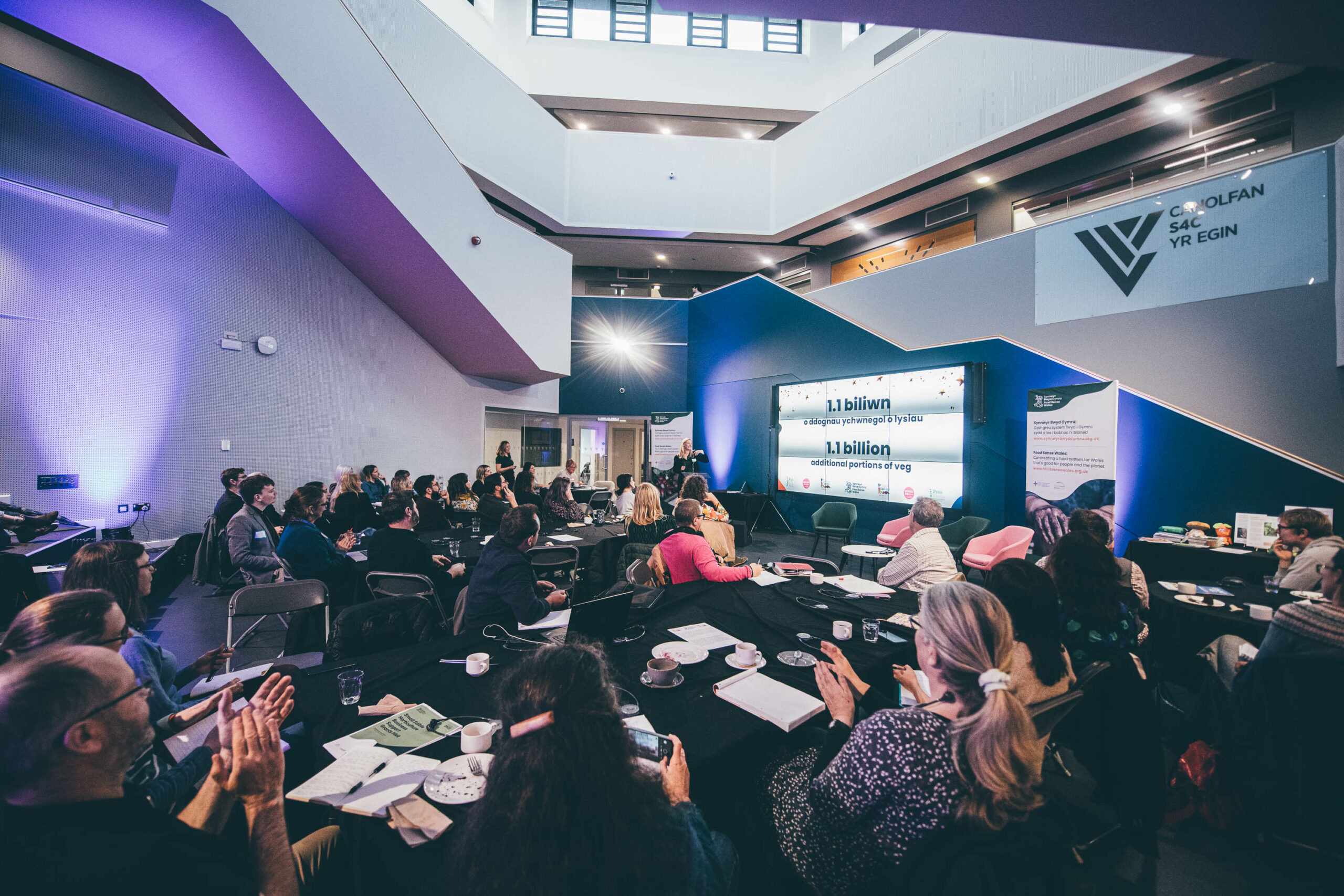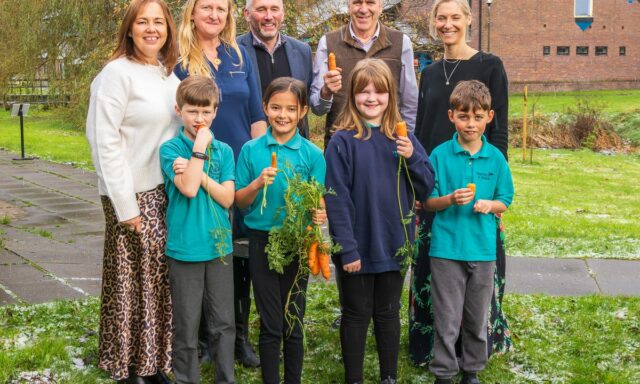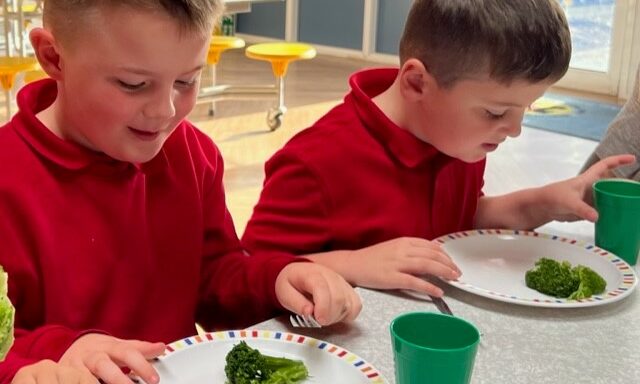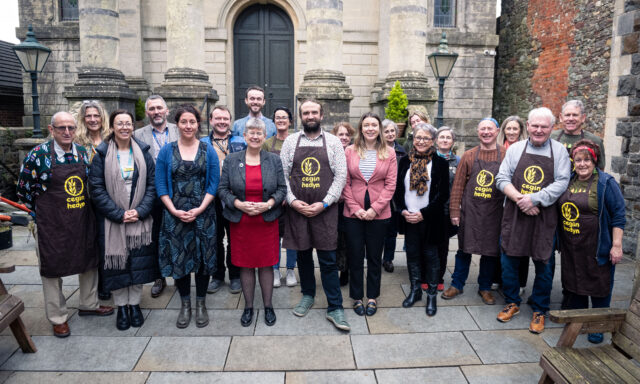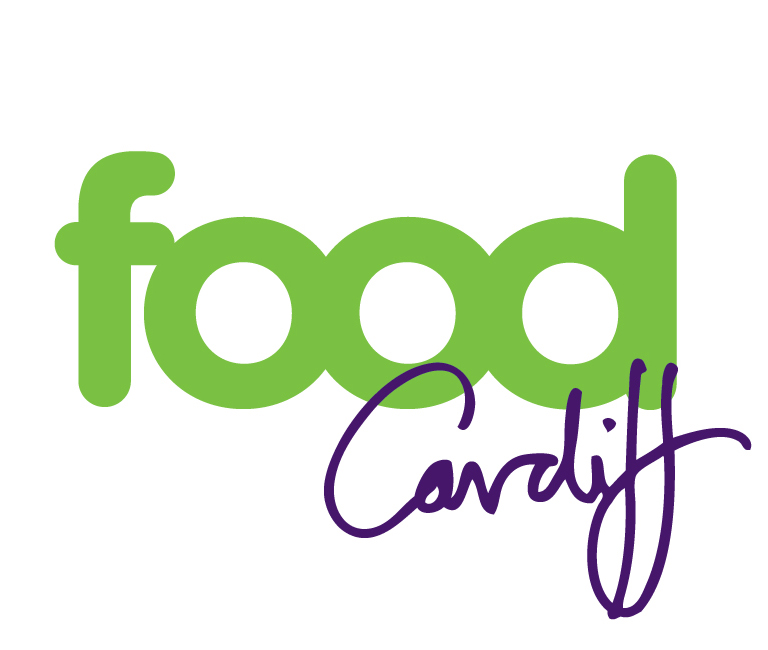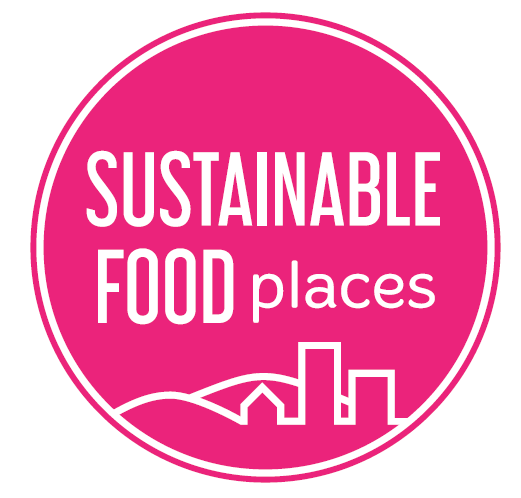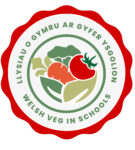Celebrating the achievements of Peas Please in Wales
On Thursday, November 9th, Food Sense Wales hosted a Veg Summit at Yr Egin in Carmarthen to celebrate the work and achievements of the Peas Please initiative in Wales.
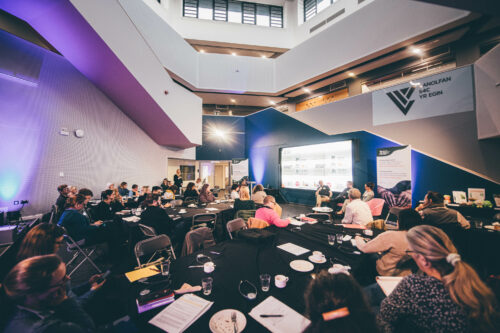
Peas Please is a UK-wide lottery-funded initiative that is now in its final year. Established in 2019, Peas Please’s mission has been to make it easier for everyone in the UK to eat more veg. Throughout the duration of the four-year programme, Food Sense Wales has led on the Peas Please work in Wales and over the years has brought together farmers, retailers, and restaurant chains, caterers, processors and government departments with a common goal of making it easier for everyone to eat veg. Other UK project partners involved in this initiative have been The Food Foundation, Nourish Scotland, Food NI and Nourish NI.
A ground-breaking programme focused specifically on veg, Peas Please has aimed to secure commitments from industry and government to improve the availability, acceptability (including convenience), affordability, and quality of the vegetable offer in shops, schools, restaurants and beyond, and in turn stimulate increased vegetable consumption among the UK public, particularly children and those on a low income.
Since the Peas Please project launched four years ago, 1.1 billion cumulative additional portions of vegetables have been sold or served and 110 organisations pledged to play their part to help everyone in the UK eat an extra portion of veg a day. These pledges are known as Veg Pledges and in Wales, Food Sense Wales managed 8 national pledgers, 24 local pledges through Food Cardiff and the 25 Veg city pledgers in partnership with Sustainable Food Places. Eight retailers also added value to the Healthy Start scheme across the UK and in Wales, 22 people were recruited to become Veg Advocates, working as individual agents of change in their local communities and helping to drive the enormous changes needed in our quest to get everyone eating more veg.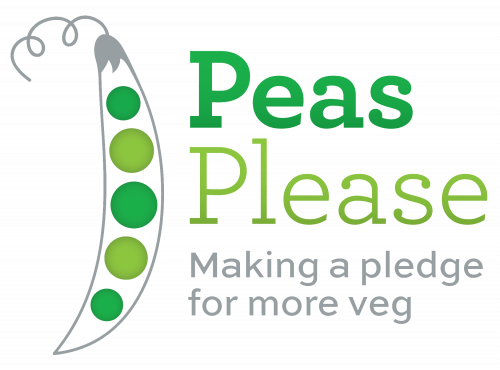
In 2021, in a bid to increase local production, Food Sense Wales along with partners Social Farms & Gardens, awarded five Peas Please grants of between £2500 and £5000 to assist smaller edible horticultural businesses operating in Wales. The subsequent report showed that small-scale investment could have a significant and positive impact on edible horticulture businesses, with sales of veg increasing on average by 75%.
And later, in 2022, as part of Castell Howell’s pledge to develop local supply chains, Food Sense Wales worked with the wholesaler to develop an action research pilot to explore what it would take in practice to get Welsh veg from agroecological producers onto Welsh school children’s plates. This culminated in the publication of another report which noted how school meals represent an opportunity for a secure market for agroecological veg producers and how they could be used as a key mechanism for investment in vegetable supply chains in Wales. A second phase pilot, supported by Welsh Government Foundational Economy funding is now building on the findings of the initial ‘Courgette Pilot’ again looking at increasing the amount of local veg going into schools.
Peas Please was also noted as a programme in the 22-24 Healthy Weight Healthy Wales delivery plan under National Priority Area 1, shaping the food and drink environment towards sustainable and healthier options. Its aim is to ensure that our food environment is more targeted to healthier options to make the healthy choice, the easy choice.
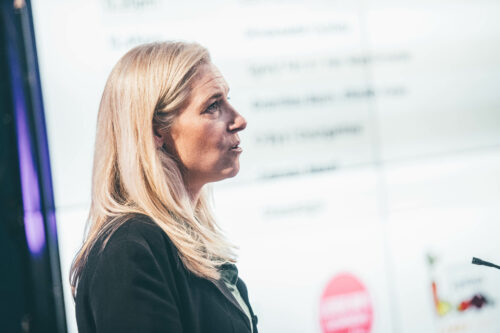
“With the Peas Please programme drawing to a close, the Wales Veg Summit was a really important opportunity to thank everyone who’s been involved with Peas Please to date – pledgers, supporters, Veg advocates and beneficiaries – and to look forward at how we can continue working together on these issues against a massively challenging backdrop,” says Katie Palmer, Programme Manager at Food Sense Wales.
“We know that we’re not eating enough veg in the UK and Peas Please was developed as a partnership initiative to remind people that veg is good for us and that we need to be eating more. Recent statistics published by the Wales School Health Research Network state that only 37% of children surveyed in years 3 – 6 (ages 7-11) reported eating at least 1 portion a day; girls are much more likely to be eating veg than boys and that learners from higher income households were more likely to report eating vegetables daily than those from low income households.
“The aim of Peas Please was to see more veg being eaten; to catalyse a shift in the food system and to establish a successful model for enabling people’s voices,” continues Katie. “Throughout the event, we celebrated the impact that Peas Please has had in Wales, from an individual level to national UK impact and it was a privilege to be able to recognise the Wales Peas Please community for the contribution they’ve made to changing the way we think about veg. But we need more urgency from Government too. Veg consumption is vital for our health – and despite our best collective efforts, Veg consumption is still decreasing. Over the last 4 years the proportion of vegetables in our shopping baskets has decreased from 7.2% when Peas Please was launched (Kantar 2017) to 6.8%. To be in line with the government’s Eatwell Guide, 20% of the shopping basket should be made up of vegetables.”
During the Veg Summit, Food Sense Wales highlighted some of the areas that have created impact, including the Veg advocates programme; how a Peas Please advertising competition led to the creation of Veg Power and a multi-million pound veg advertising campaign; communities taking action on Veg through Veg Cities; small grants that have delivered a big impact as well as Peas Please pledges.
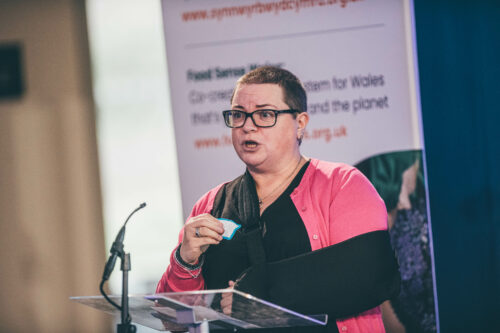
Llinos Hallgarth, one of Wales’ Veg Advocates took part in the Veg Summit and spoke about her experience of being part of the programme. “As a Peas Please Veg Advocate, I was lucky enough to receive a small pot of money from the small grant scheme that allowed us to raise awareness of the project through a practical community project in the Llandysul area,” Llinos said. “Even though it was a small amount of money, its impact was large, and left a lasting legacy that was built on in the following year.
“In conjunction with Yr Ardd, a community lead growing and community garden project I’m involved with, we were able to grow produce, harvest and then pickle, jam and preserve what we had not been able to eat when picked,” adds Llinos. “Interestingly for me, as a language office for the local language initiative ‘Cered’, it also allowed us to get in touch with our local heritage and culture by collecting gardening, plant and cooking words and terminology in Welsh, allowing us to document them and make sure they are words we don’t lose due to changing trends and use.”
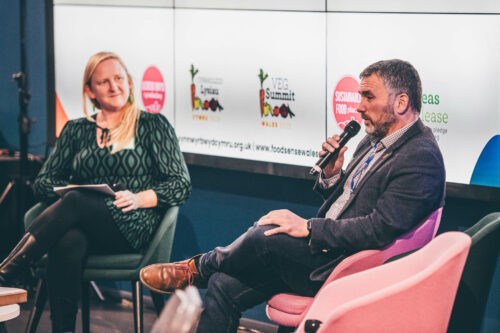
Edward Morgan, Group CSR & Training Manager at Castell Howell Foods was another of the panellists at the Veg Summit. He took part in a conversation that looked at Castell Howell’s Peas Please pledges. “Our involvement with Peas Please has introduced Castell Howell to our responsibilities to the help address the issues of dietary issues,” said Edward Morgan. “We supply some 1100 schools, and helping to introduce a higher volume of vegetables to meals and menu choices is critical, working with our supply chains is essential to help deliver these ambitions.”
As the Peas Please programme draws to a close, Food Sense Wales will continue to build on successes with others in the veg and horticulture communities – advocating for meaningful investment in horticulture, building case for public health and working on solutions with new programmes of work, such as Bridging the Gap. Food Sense Wales is also continuing its work on the Welsh Veg in Schools project and, in conjunction with its UK Peas Please partners, planning has started on a new veg-based project.
Here’s a video that summarises the event:
And if you missed the Wales Veg Summit and would like to catch up on all of the panel discussions and conversations, you can watch the full event below:

